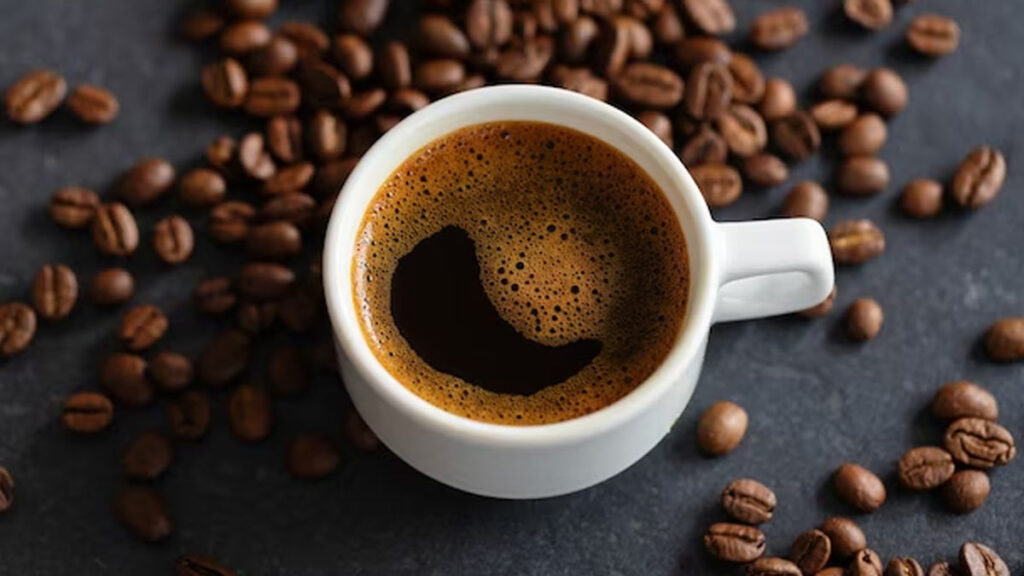القهوة هي واحدة من المشروبات الأكثر شعبية في جميع أنحاء العالم ، حيث يتم استهلاك أكثر من 2.25 مليار كوب يوميا. يشربه الناس ليس فقط لمذاقه ، ولكن أيضا لزيادة الطاقة التي يوفرها بسبب محتواه من الكافيين. تشير الأبحاث إلى أن القهوة قد تقدم العديد من الفوائد الصحية ، ولكن مثل العديد من الأشياء ، فإن الاعتدال هو المفتاح. تستكشف هذه المقالة الاستخدامات والفوائد الصحية والمخاطر المحتملة للقهوة.

استخدامات القهوة
يتم استهلاك القهوة لأسباب مختلفة:
- Energy Boost: Due to its caffeine content, coffee helps improve focus and reduce fatigue.
- Social Drink: Coffee is often enjoyed as part of a daily routine or social gatherings.
- Antioxidant Source: Coffee contains antioxidants, which can protect cells from damage.
الفوائد الصحية للقهوة
وجد الباحثون أن شرب القهوة قد يقدم العديد من الفوائد الصحية المحتملة:

- Protection Against Type 2 Diabetes: Studies show that people who drink coffee regularly have a lower risk of developing type 2 diabetes. Increasing your daily intake by just one cup can reduce this risk by 11%. Both caffeinated and decaffeinated coffee are linked to a lower risk of metabolic syndrome, which includes conditions like diabetes.
- Reduced Risk of Parkinson’s Disease: Caffeine in coffee may help protect against Parkinson’s disease. Research suggests that men who drink more than four cups a day may lower their risk by fivefold. Coffee consumption may also reduce the chances of depression and Alzheimer’s disease.
- Liver Health: Coffee is associated with a reduced risk of liver diseases like cirrhosis, liver cancer, and nonalcoholic fatty liver disease (NAFLD). Drinking two to three cups a day may lower the risk of liver cancer by 38% and chronic liver disease by 46%.
- Heart Health: Moderate coffee consumption—three to five cups a day—can reduce the risk of heart disease by 15%. It has also been shown to lower overall mortality rates. However, excessive consumption may raise cholesterol levels in some individuals, which could increase heart-related risks.
- Weight Management: Some studies suggest that coffee may aid in weight loss. Higher coffee intake has been linked to a reduction in body weight, fat mass, and body mass index (BMI). However, coffee alone is not a substitute for a healthy diet and exercise.
القيمة الغذائية للقهوة

يحتوي فنجان من القهوة السوداء على حوالي 2 سعرة حرارية فقط ويوفر العناصر الغذائية مثل الريبوفلافين (فيتامين B2) والنياسين (فيتامين B3) والمغنيسيوم والبوتاسيوم. تحتوي حبوب البن أيضا على مادة البوليفينول ومضادات الأكسدة التي تحمي من الجذور الحرة ، والتي يمكن أن تسبب تلف الخلايا والالتهابات المرتبطة بالسمنة ومرض السكري.
المخاطر والآثار الجانبية للقهوة
في حين أن القهوة تقدم فوائد عديدة ، فإن الاستهلاك المفرط أو في ظل ظروف معينة يمكن أن يؤدي إلى آثار سلبية:
- Bone Health: High coffee intake may increase the risk of bone fractures, especially in women. Men, however, might experience a slight reduction in fracture risk.
- Pregnancy Complications: Drinking large amounts of coffee during pregnancy may increase the risk of miscarriage, low birth weight, and preterm birth. Pregnant women are advised to limit their caffeine intake.
- Gastroesophageal Reflux Disease (GERD): Excessive coffee consumption can irritate the stomach and worsen symptoms of GERD, a condition where stomach acid flows back into the esophagus.
- Mental Health: High caffeine intake may increase anxiety, particularly in individuals with panic or social anxiety disorders. It may also trigger mania or psychosis in susceptible individuals. Excessive caffeine during adolescence has been linked to long-term changes in the brain, potentially leading to anxiety-related conditions in adulthood.
- Toxic Substances: Coffee can contain harmful substances such as mycotoxins, a type of mold that can contaminate coffee beans. Acrylamide, another chemical found in coffee, has raised some concerns, though more research is needed.
- Other Side Effects:
- Insomnia: Too much caffeine, especially later in the day, can disrupt sleep patterns.
- High Blood Pressure: Drinking coffee during exercise may increase the risk of heart problems in some individuals.
- Fertility: High caffeine intake may affect fertility, and excessive consumption during pregnancy can harm the fetus.
القهوة مقابل الشاي: ما الفرق؟

تحتوي كل من القهوة والشاي على مادة الكافيين ، على الرغم من أن القهوة عادة ما تحتوي على مستويات أعلى. في حين أن القهوة لها تأثيرات وقائية قوية ضد أمراض مثل أمراض القلب وأمراض الكبد ، يرتبط الشاي أيضا بالعديد من الفوائد الصحية ، خاصة عند الرجال. قد يعتمد الاختيار بين القهوة والشاي على التفضيلات الشخصية ، حيث أن كلاهما له فوائد اعتمادا على الكمية المستهلكة.
استنتاج
القهوة ، عند تناولها باعتدال ، يمكن أن تقدم العديد من الفوائد الصحية ، بما في ذلك تقليل خطر الإصابة بمرض السكري من النوع 2 ومرض باركنسون وأمراض الكبد. يمكن أن يدعم أيضا صحة القلب ويساعد في إدارة الوزن. ومع ذلك ، فإن شرب الكثير من القهوة أو إضافة مكونات غير صحية مثل السكر والقشدة يمكن أن يقلل من فوائدها ويؤدي إلى مخاطر صحية جديدة. قد ترغب النساء الحوامل والأفراد الذين يعانون من القلق والمعرضين لخطر الإصابة بكسور العظام في الحد من تناول القهوة لتجنب الآثار الجانبية المحتملة.

في النهاية ، مثل العديد من الأطعمة والمشروبات ، المفتاح هو التوازن. استهلاك ثلاثة إلى أربعة أكواب من القهوة يوميا آمن بشكل عام لمعظم الناس وقد يحسن الصحة العامة.


